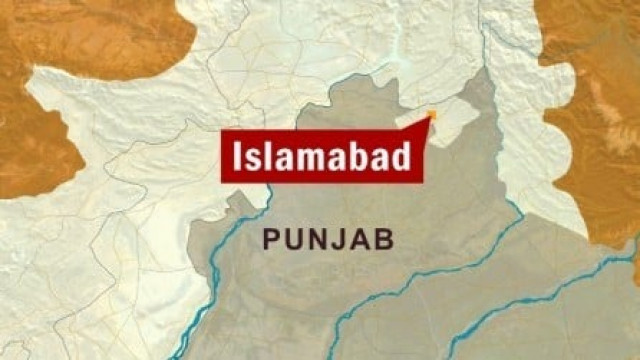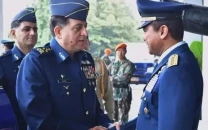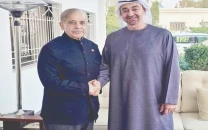Census delayed for being a risky enterprise

The army has refused to spare 175,000 of its troops and officers for the 13-day exercise.
The soldiers were required for the security of an equal number of census-takers to carry out their work.
The fresh census will cost the government about Rs4 billion, according to Khizar Hayat Khan. The government was supposed to carry out a population count in 2008 but the threat of terrorism and the inadequate law and order situation forced the authorities to delay the operation.
Pressure has been mounting on the census authorities since 2009 when Sindh voiced reservations over the National Finance Commission award. Subsequently, the federal government decided to make the population census one of its priorities.
The prime minister even constituted a special committee to overcome the problems that were hindering the census, the chief commissioner said.
The four provincial governors and chief ministers as well as some of the federal ministers who were members of the committee met in June 2009 to clear the decks for the project but to no avail.
The committee ultimately decided to refer the issue to the federal cabinet. A summary containing various proposals by the census commissioner is pending with the federal cabinet for the last two months, Khizar Hayat said.
‘Army should conduct the census’
One of the major hurdles is the demand by Balochistan Chief Minister Nawabzada Aslam Raisani that Pakistan Army supervise the census in his province. Raisani has made it clear to the federal government that his province would not accept the outcome of the census without such supervision.
The Baloch and Pashtun populations of Balochistan both claim clear majority and that is said to be the major worry of the provincial chief minister who believes a census conducted without army supervision would be rejected by the minority ethnic group.
The continuing ethnic bloodshed and terrorism in Balochistan is another reason for the delay in launching the exercise in that province.
Non-Baloch census-takers are not willing to step into the Baloch-majority areas to do the head count, another official said on condition of anonymity. The census commissioner, however, insists that all staff can be deployed in the Baloch-populated areas.
But those familiar with the intricacies of the ethnic strife in Balochistan believe that the Pashtuns of the province will not accept the results of the census conducted by the Baloch staff in Baloch-dominated areas and that Baloch will likewise also react in the same manner in case they were not involved in the census operation in the Pashtun-populated areas of Baluchistan.
Balochi nationalists oppose “the presence of over a million Pushtu-speaking Afghan refugees” in the province. Conducting census in Fata, Malakand and some parts of Khyber-Pakhtunkhwa is also a risky enterprise where kidnapping and killing of government officials by militants has almost become the order of the day.
Wrong timing
The elected representatives of Fata, mainly from Waziristan, have reservations over the timing of the census. They are of the view that thousands of tribesmen have relocated over the past few years because of terrorism and army operation. Therefore, they insist, the population census in the tribal areas without their participation would be meaningless.
The last census was conducted in 1998 after a lapse of 18 years. Three sensitive issues – NFC award, the allocation of seats in the federal legislature and provincial assemblies and the quota in federal government jobs – are decided on the basis of population. Because of this criterion, population census has always been the source of serious bitterness and tug-of-war between the four provinces.
According to a projection by the National Institute of Population Studies (NIPS), the total population of Pakistan on April 14, 2010 was 172.57 million. The population of Pakistan will cross the 209,81 million mark in 2020, the report added.
The NIPS report on population is based on different formulas and assessments. Because of this reason the chief census commissioner is not ready to buy its findings.
“These figures are merely made up. I do not consider them worthy of serious consideration,” Khizer Hayat Khan said. However, the Pakistan Planning Commission, Election Commission of Pakistan and all other national and international organisations continue to use the NIPS statistics in their projections and plans.
As per international practices census should be conducted after every 10 years. The 1998 census was conducted after 18 years under the army supervision.
Khan said that a population survey was conducted by his organisation as a substitute to the population census during the first Benazir government. That survey found that many districts of Sindh had shown 8, 10, 12 and 16 per cent increase in their population. The survey was still on when the Benazir government was dismissed. When Nawaz Sharif took over as prime minister, he stopped the survey. However, the survey was restarted and completed during Benazir’s second term, Khan said.
But Benazir set aside the results of the survey when she found out that the results were artificially exaggerated. This was the reason why the army’s assistance was sought to conduct the 1998 population survey, he said.
According to census officials, the population growth trend appears to be on the decline. At present the population growth rate is 1.96 per cent annually, they say, while 10 years ago it was 3.6 per cent.
There are three main reasons for such a decline in the population growth annually. This includes socio-economic factors, awareness among the people and change of behaviour in families.
Published in The Express Tribune, August 3rd, 2010.


















COMMENTS
Comments are moderated and generally will be posted if they are on-topic and not abusive.
For more information, please see our Comments FAQ